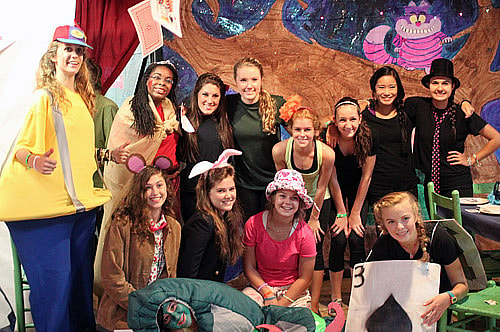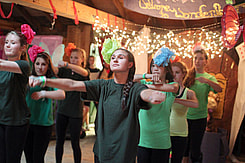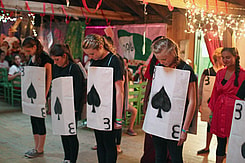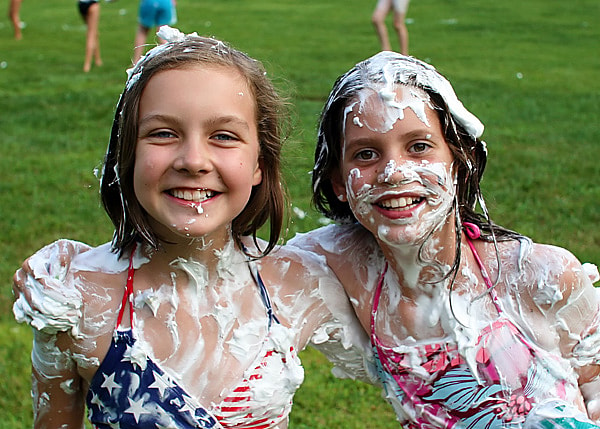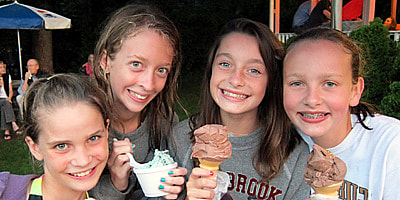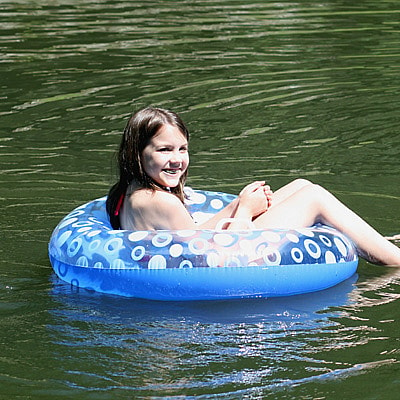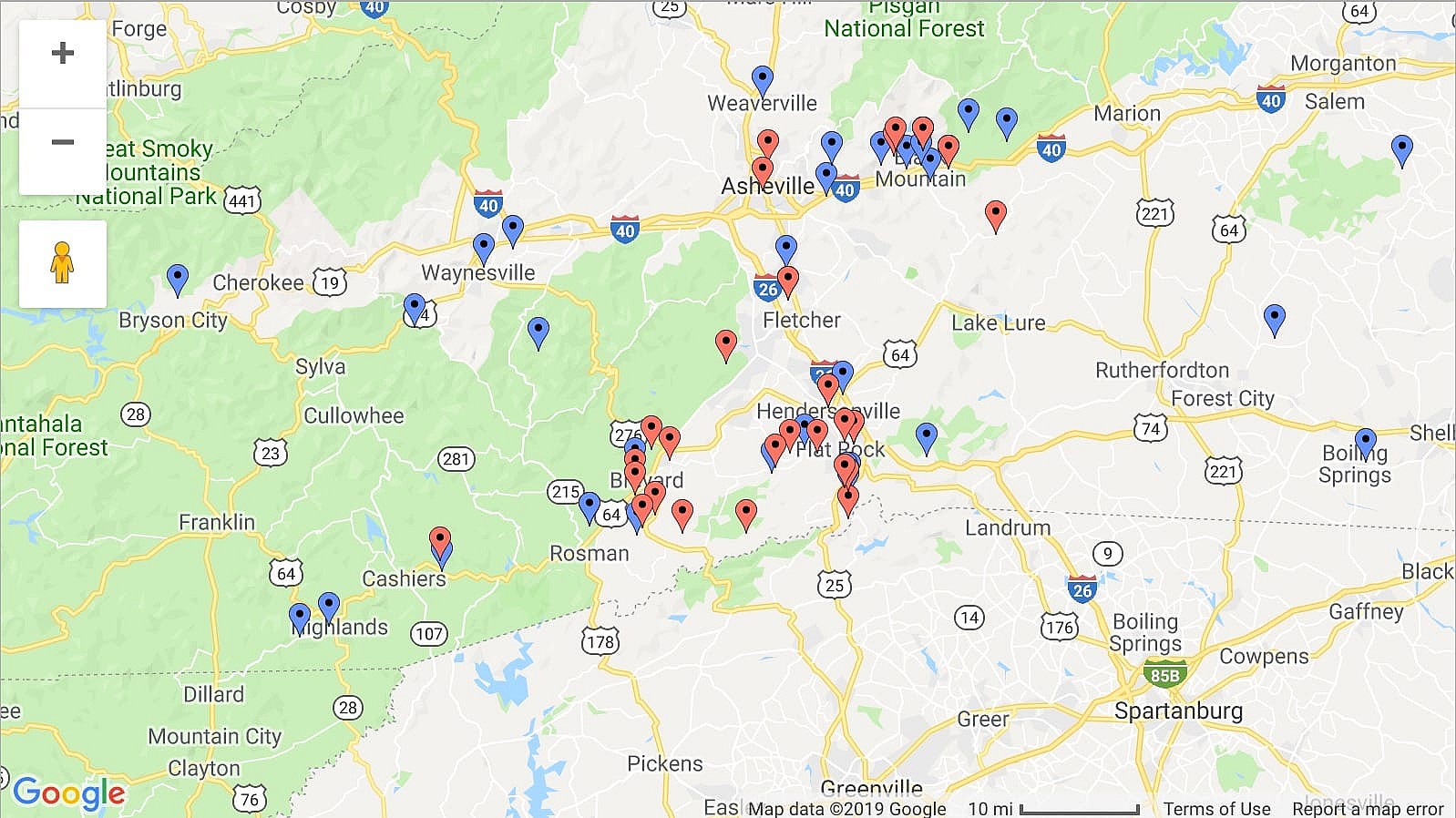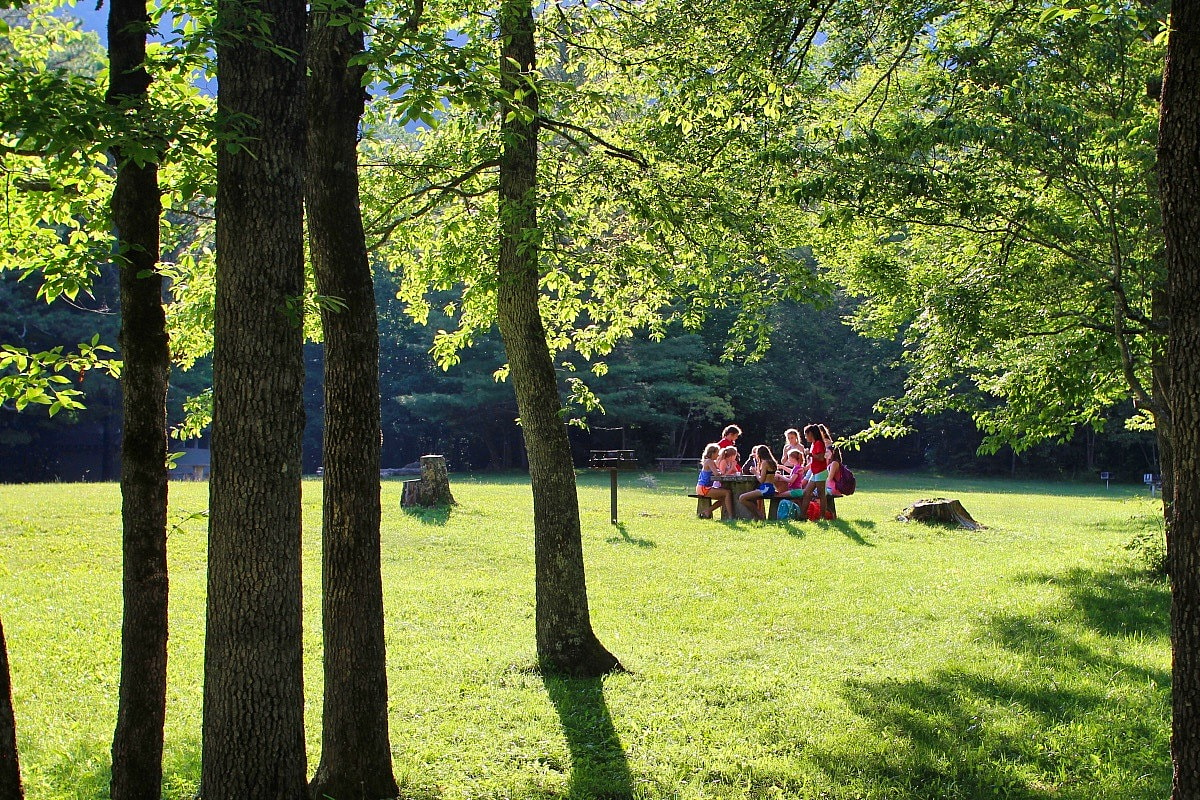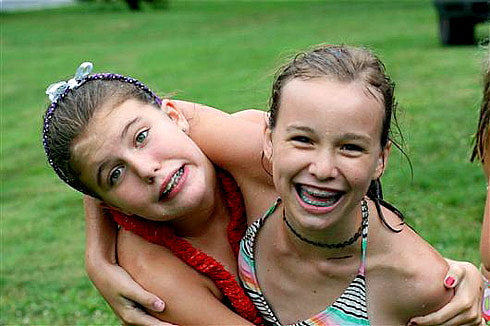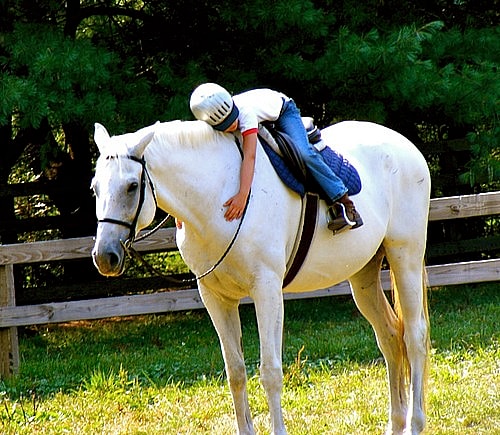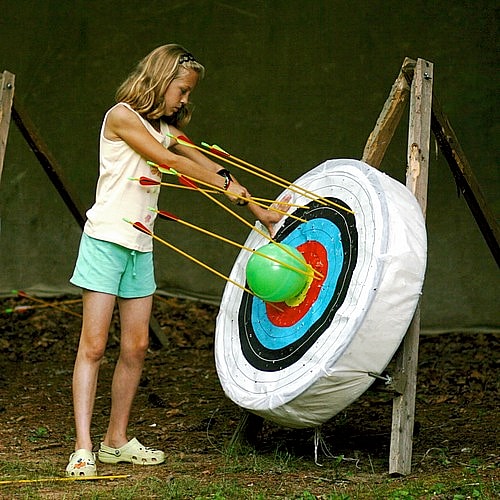The end-of-session Banquet is a huge deal at Rockbrook, something that everyone, from the youngest first-time camper to the most senior staff member, looks forward to. The element of surprise drives this to some extent, since the Banquet’s theme is kept secret, but it’s also a marvelous experience to attend, one filled with colorful wall panels, table decorations, choreographed dancing by live characters, special food, and dance music.
The planning for each session’s banquet begins long before the girls arrive at Rockbrook. In fact, for girls who attend camp every summer, it can be a topic of discussion years before they even become “CA” campers, 9th graders, the age-group given the task of presenting this end-of-session party. Many of these girls have grown up attending RBC Banquets, seeing what the CAs before them have done, so when it’s their turn, they are full of ideas.
The CAs this session decided to make their banquet an Alice in Wonderland theme, titling it “Down the Rabbit’s Hole” and featuring decorations and characters based on the well-known novel by Lewis Carroll, and the Disney animated film adaptation of the book. The decorations were phenomenal! Every wall of the dining hall was covered with a unique poster painted with a scene of character from the story. There were over-sized and regular playing cards hung among strands of lights, curtains, and fabric. On each table, there were paper mushrooms, plenty of candy, more playing cards, top hats, small bottles of bubble solution, and souvenir red cups. Here’s a short video to get a sense of the detail of these decorations and the amount of time and energy it took these girls to paint and set up the entire dining hall.
The costumes were amazing as well. Several of the counselors dressed as main characters: Alice, the White Rabbit, the Cheshire Cat, the Mad Hatter, and the Dodo Bird, while the campers became Tweedledum and Tweedledee, the Caterpillar, the King and Queen of hearts, the Door Mouse, and the March Hare. The combined effect of these characters greeting the campers as they came through the red curtain into the now unrecognizable dining hall was magical. The girls, especially the youngest Juniors, had such looks of astonishment when they first realized the theme and took everything in.
The program included a series of skits and dances enacting scenes from Alice’s adventures alternating with courses of food. They served chocolate chip scones after Alice descended the Rabbit’s Hole and met Tweedledee and Tweedledum, cheesy bread sticks after the Cheshire Cat appeared, and fancy small sandwiches when Alice saw flowers dancing in the garden. Cupcakes decorated like mushrooms topped off the meal, followed by cards dancing with the Queen of Hearts. In between program events, the campers, all dressed in this year’s RBC t-shirt, were invited to get up and dance to some of there favorite pop songs from the summer.
“You always remember your first Banquet,” a couple of Seniors told me today. And everyone agreed after tonight’s; this was one of the best banquets that everyone here won’t soon forget. It was awesome. Thank you CAs for all your hard work!

